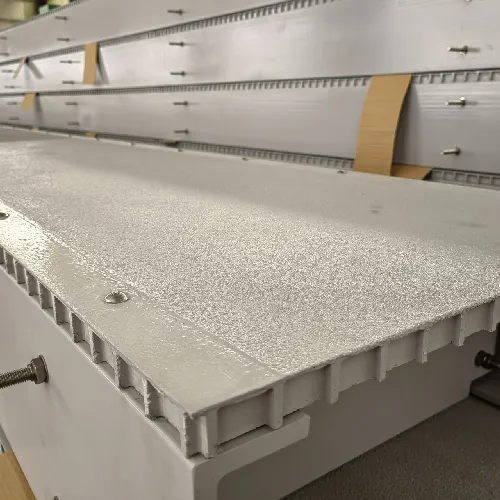loading...
- No. 9, Xingyuan South Street, Dongwaihuan Road, Zaoqiang County, Hengshui, Hebei, China
- admin@zjcomposites.com
- +86 15097380338
- Welcome to visit our website!
Effective Methods for Treating Hard Water in Residential and Commercial Settings
Hard Water Treatment Understanding the Methods and Benefits
Hard water is a common issue faced in many households, characterized by high levels of dissolved minerals, primarily calcium and magnesium. While hard water is not harmful to health, it can cause various problems in daily life. From scaling in pipes and appliances to impaired soap lathering, hard water can be a nuisance. Fortunately, effective treatment methods exist to mitigate these issues. This article delves into the various hard water treatment options, their mechanisms, and the benefits they offer.
Understanding Hard Water
Hardness in water is primarily caused by the presence of calcium and magnesium ions. Water becomes hard as it percolates through limestone, chalk, or gypsum deposits, picking up these minerals. The level of hardness can vary widely based on geographical location and the source of the water supply. Homeowners often notice signs of hard water through the presence of scale buildup on faucets and fixtures, dull laundry, and frequent need for cleaning products.
Treatment Methods
Several methods are employed to treat hard water, each with its advantages and disadvantages
1. Water Softening This is the most common approach to tackle hard water. Water softeners typically use an ion exchange process, replacing calcium and magnesium ions with sodium ions. The softened water then alleviates scaling and improves the effectiveness of soaps and detergents. While effective, this method does add sodium to the water, which may be a concern for certain individuals, particularly those on low-sodium diets.
2. Reverse Osmosis (RO) This method employs a semipermeable membrane to remove impurities, including hard minerals. RO systems are effective at producing very pure water, but they can be expensive to install and maintain. Additionally, they typically waste a significant amount of water during the filtration process.
hard water treatment

3. Chelation This chemical treatment involves adding agents that bind with calcium and magnesium ions, preventing them from precipitating out of solution. Chelating agents like EDTA can be effective in specific applications, particularly in industrial settings or specialized household products. However, this method is less conventional for whole-home systems and may require careful handling of chemicals.
4. Distillation Distillation involves boiling water and then collecting the steam, leaving behind dissolved minerals. This process is effective but energy-intensive and impractical for large-scale water supply.
5. Magnetic Water Treatment An emerging alternative, magnetic water treatment involves passing water through a magnetic field, which is claimed to alter the physical and chemical properties of the hard minerals. While there is ongoing debate about its efficacy, some users report benefits, though scientific backing remains inconclusive.
Benefits of Hard Water Treatment
Treating hard water provides numerous advantages
- Reduced Scale Buildup By mitigating hardness, treatment reduces scaling in pipes and appliances, extending their lifespan and enhancing efficiency. - Improved Cleaning Softened water results in better soap lathering, leading to cleaner dishes, clothes, and surfaces. - Enhanced Skin and Hair Care Many individuals find that their skin and hair feel better when washed with soft water, as it prevents soap scum build-up. - Saves Money Although there may be upfront costs associated with installation, the long-term savings from reduced wear and tear on plumbing and appliances can be significant.
Conclusion
Addressing hard water is essential for maintaining a smooth-running household. With various treatment options available, homeowners can choose a method that aligns with their needs and budget. By investing in proper hard water treatment, individuals can enhance their quality of life, ensuring that their water supply is both safe and efficient for everyday use.
-
GRP Structures: The Future of Lightweight, High-Performance EngineeringNewsJun.20,2025
-
FRP Water Tank: High-Performance Storage for Corrosive and Clean Water SystemsNewsJun.20,2025
-
FRP Square Tube: The New Industry Standard for Chemical and Structural ApplicationsNewsJun.20,2025
-
FRP Pultruded Profiles: The Ultimate Choice for Lightweight Structural StrengthNewsJun.20,2025
-
FRP Handrails: The Safer, Smarter, and Stronger Choice for Modern InfrastructureNewsJun.20,2025
-
FRP Grating: The Smart Solution for Durable, Lightweight Industrial FlooringNewsJun.20,2025
-
Why Choose a Galvanized Water Tank for Your Storage NeedsNewsMay.21,2025
